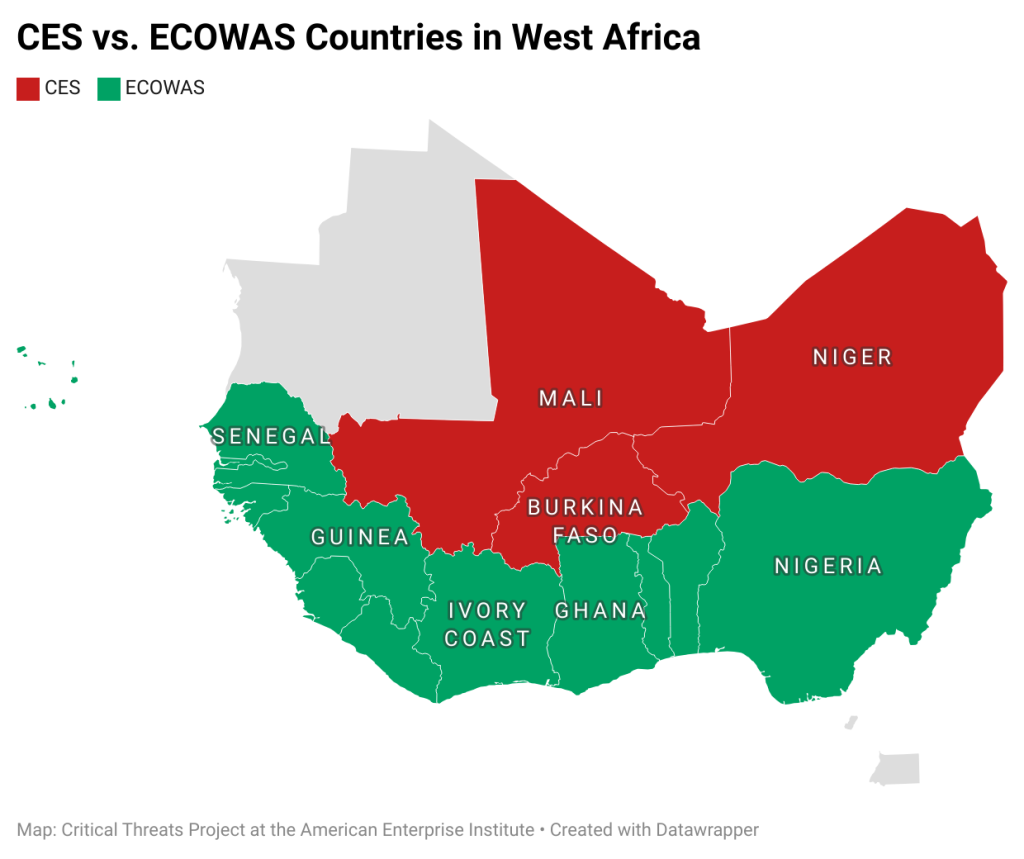
ECOWAS’s Transitional Offer
At a recent summit held in Abuja, Nigeria, ECOWAS leaders extended a six-month grace period for these countries to reconsider their planned exit from the bloc. This extension aims to facilitate dialogue and potentially reverse their decision to leave, which was initially announced in January 2024 amid accusations against ECOWAS of ineffective governance and undue influence from foreign powers, particularly France. However, the juntas governing these nations have expressed their departure as “irreversible,” signaling a definitive break from ECOWAS’s influence.
Background of Military Coups
The backdrop to this unfolding drama is rooted in a series of military coups that have swept through the Sahel region in recent years. The juntas that now lead Mali, Burkina Faso, and Niger have increasingly distanced themselves from traditional alliances and sought to establish their own coalition—the Alliance of Sahel States (AES). This new alliance aims to fortify military cooperation among its members while simultaneously rejecting what they perceive as ECOWAS’s failures to address their security challenges effectively.
ECOWAS’s Response and Challenges
During the summit, ECOWAS Commission President Omar Alieu Touray emphasized the bloc’s commitment to maintaining ties with these nations. He stated that efforts would continue throughout the transitional period from January 29 to July 29, 2025. However, many analysts remain skeptical about the likelihood of reversing these withdrawals. The juntas have firmly established their stance against ECOWAS’s demands for a swift return to civilian rule and have instead prioritized national security over political negotiations.
Public Sentiment and Support for Sahel Juntas
The rejection of ECOWAS’s offer reflects broader sentiments among the populations of these countries. Many citizens supported the military takeovers due to frustrations with perceived governmental inefficiencies and rampant insecurity caused by extremist groups operating in the region. As such, there is a palpable sense of national pride and autonomy driving these nations’ decisions to forge their own paths in Africa.
Implications for Regional Stability
In practical terms, this exit could have profound consequences for regional stability and economic collaboration. ECOWAS has long served as a platform for promoting free trade and movement among its member states. The departure of Mali, Burkina Faso, and Niger threatens to undermine these principles, potentially isolating these countries economically while also jeopardizing regional security efforts against terrorism.
The Formation of AES
The AES’s formation has further complicated matters; it represents a significant shift towards a more militarized approach to governance in the Sahel. By aligning themselves more closely with Russia and other non-Western powers, these nations are redefining their diplomatic relationships and signaling a departure from Western influence that has historically dominated West African politics.
Tensions Rise Between ECOWAS and Sahel States
As tensions escalate between ECOWAS and its departing members, the potential for conflict looms large. The bloc’s previous threats of military intervention following coups have only hardened positions within these states. They view such threats as an infringement on their sovereignty and an attempt by ECOWAS to maintain control over governance in the region.
The Road Ahead
The situation remains fluid as both sides navigate this complex geopolitical landscape. While ECOWAS continues its diplomatic outreach in hopes of reintegration, Mali, Burkina Faso, and Niger appear resolute in their decision-making. The next six months will be critical; they will determine whether dialogue can prevail over division or if this rift will deepen into an unbridgeable chasm that could reshape West Africa’s political dynamics for years to come.
A New Era for West Africa and ECOWAS
In conclusion, as Mali, Burkina Faso, and Niger chart their course away from ECOWAS’s influence, they are not just rejecting an organization but are also redefining their national identities amidst external pressures. The ramifications of this decision will resonate throughout West Africa and beyond as regional leaders grapple with an evolving landscape marked by shifting alliances and emerging powers.

